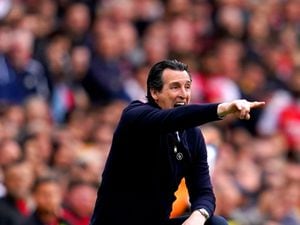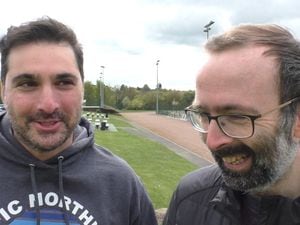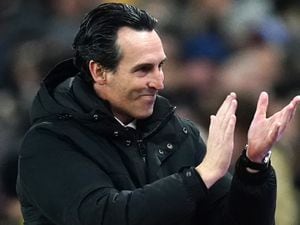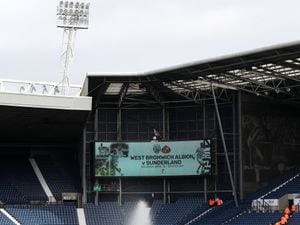Matt Maher: 40 years on, has there been a greater rise and fall than this one?
Just what were Aston Villa doing winning the European Cup?
The question, delivered in the opening minutes of Super Villans, a new film which tells the story of the club’s greatest triumph, feels a pertinent one.
Though rival supporters in these parts who are long tired of hearing about it would disagree, the truth is – outside the Midlands – the events of 1982 have been relatively forgotten, at least when compared to the achievements of other English clubs from an era when the trophy regularly resided on these shores. Even some of the men who made it happen admit so.
“If you asked the average man on the street to name the clubs who have won the European Cup, I reckon more often than they’d name Celtic ahead of Villa,” says Tony Morley. “There are probably some younger people who don’t even know Villa won it. We’re a bit of an afterthought.”
Super Villans, which premieres next week on BT Sport, should hopefully provide the likes of Morley, Dennis Mortimer, Peter Withe and Gary Shaw with some wider exposure. Produced to coincide with the 40th anniversary of the European Cup win, it is the first film dedicated solely to Villa’s story.
You might wonder why it has taken so long? After all, Villa’s win was no less valuable than those of Nottingham Forest and Liverpool and others which have found a deeper home in the national consciousness and received documentary treatment.
The circumstances surrounding it, with manager Ron Saunders quitting three months before the final and Tony Barton, who had never managed before, finishing the job, make it all the more impressive and a worthy underdog narrative.
An explanation for its lack of traction outside the region can be found, partly, through understanding the historical context.
“Believe it or not, football wasn’t actually all that popular in 1982, at least certainly nowhere the level it is now,” explains Dave Woodhall, long-time editor of the Heroes & Villains fanzine.
“If you weren’t interested in football, you wouldn’t know who any of the players were. The front pages of the local papers the day after Villa beat Bayern Munich in the final led on the Falklands War. The match wasn’t mentioned.”
In such an environment, Villa lacked a figure who transcended the sport in the manner Brian Clough did at Forest.
Saunders was undoubtedly the greatest manager in the club’s history. But he was not a media darling and his belief in the importance of the team over any individual, while a critical part of their success, meant Villa did not possess any superstars. The 1980 sale of Andy Gray, which funded the purchase of Peter Withe, is covered early in Super Villans.
Having guided Villa to their first championship in 71 years, Saunders quit prior to the European Cup quarter-final tie with Dynamo Kyiv. Barton, officially assistant manager but who operated as chief scout, was unknown to many of the players let alone the general public.
More than anything else, Villa’s story has suffered from what happened after they defeated Bayern in Rotterdam. The career-blighting injuries suffered by Shaw, a player who would otherwise have surely gone on to establish himself as a household name, were cruel. Yet they by no means explain the club’s failure to build on a moment which Morley and his team-mates have always insisted should have been the start of a golden era, rather than the end of it.
The makers of Super Villans are right to claim Villa’s rise from the Third Division to champions of Europe in the space of just 11 years is among the most remarkable in the history of English football.
Perhaps more extraordinary is how the club came to be relegated just five years after being crowned kings of the continent. Throw in the fact that for more than two decades, under the stewardship of Doug Ellis, Villa themselves failed to pay necessary homage to the success and it is little wonder it has been forgotten elsewhere.
“We could have won more trophies. We should have won more trophies,” says Morley. “Everton ended up being the team of the mid-80s but we were better than them.
“I feel most sorry for the supporters because they could have seen another two or three trophies but we got let down, big time.
“You don’t become European champions and then get relegated five years later. That tells you something drastic went wrong.”
Maybe a second documentary is required. In the meantime, Super Villans is a belated but fitting tribute to Villa’s finest hour.
Narrated by Fast Show star and lifelong supporter Mark Williams, it features interviews with most of the squad and countless anecdotes, some well-known others less so, while the recreation of Morley and his team-mates in animated form will no doubt catch the attention of younger generations.
What leaves the biggest impression, however, is the match action itself as Villa first beat Ipswich to the First Division title before embarking on their European journey, seeing off Valur, Dynamo Berlin, Dynamo Kyiv and Anderlecht before that famous night against Bayern Munich.
Crisper than the footage which typically circulates online, it leaves no doubt as to the immense talent of the players and the brilliance of their victory. “These days people look back at the European Cup, the number of English teams who won it at the time and think it couldn’t have been that hard,” says Morley.
“But it was. For one thing, you had to be champions to qualify. There was no group stage. If you had a bad night, that was it, you were out.
“Just look at some of the great players who never got their hands on the trophy, the likes of Johnny Giles and Bobby Moore. To be one of those who can stand up and say: ‘I won it’. I’m very proud.”
n Super Villans premieres on BT Sport 1 at 11pm next Wednesday, May 18 and will be available via the BT Sport App any time thereafter. Visit BTsport.com/films





